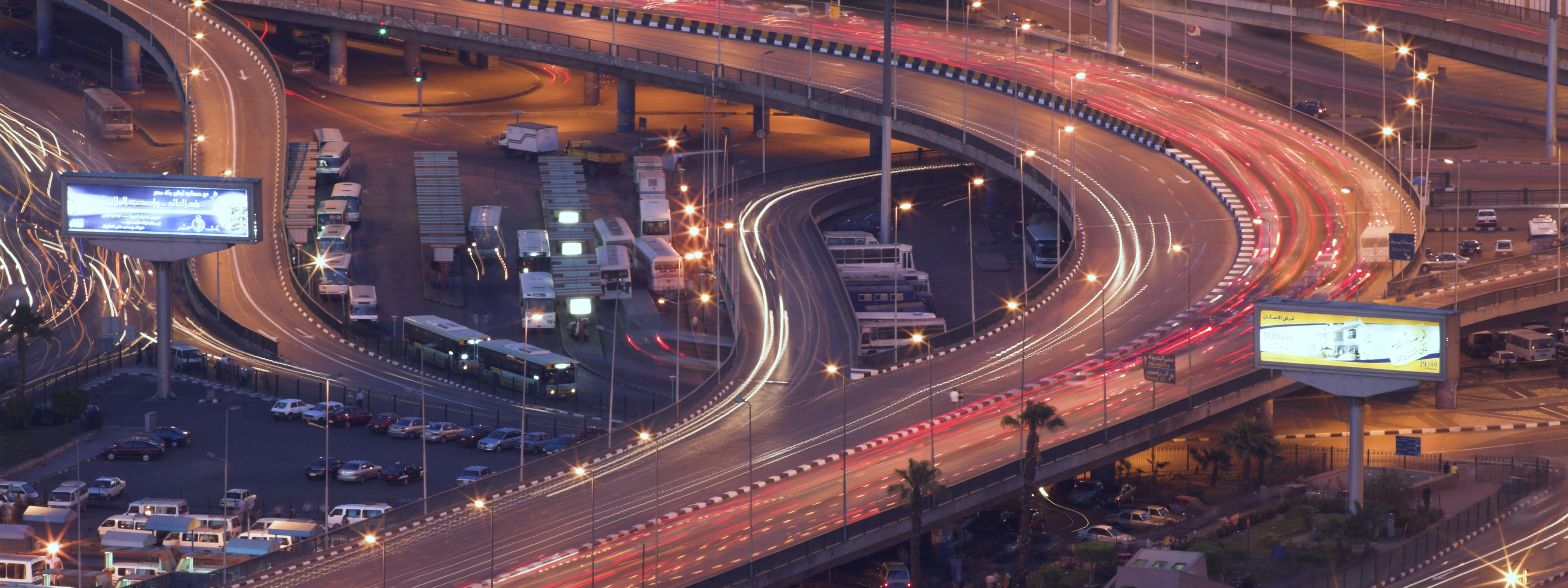
New Competition Regimes and Increased Antitrust Enforcement across the Middle East & North Africa
7 min read
The tidal wave of antitrust activity throughout the Middle East & North Africa is expected to continue rising in 2023, as several jurisdictions across the region have started to amend their competition laws, introduce new regimes, or announce new antitrust enforcement efforts. While Egypt, Kuwait, Morocco, and Saudi Arabia, among others, notably have been taking steps recently to actively enforce and expand the scope of their competition regimes, new antitrust laws are forthcoming in Lebanon and Jordan, in addition to new regional and cross-border collaboration initiatives in antitrust enforcement.
We briefly highlight below some of these key developments to monitor this year.
Legislative Amendments in Egypt and Morocco
Egypt: On 29 December 2022, Egypt enacted amendments to its competition law, which transformed Egypt from a post-closing notification regime to a pre-merger approval regime.1 The new regime will include a two-phased merger review process of up to a total of 90 working days (with potential extensions). Violations of pre-merger notification will be subject to increased fines of up to 10% of the parties’ turnover or assets,2 or a fixed amount of up to EGP 500 million (approximately USD 16.7 million) if the foregoing percentage cannot be calculated. The Egyptian Competition Authority (“ECA”) will start to enforce the new regime only after the executive regulations are issued, which will clarify the legal standards, procedures, and requirements for the new filing regime.3 The regulations are expected to come out soon, and could be as early as the end of January. For more on this, see: Egypt to Overhaul its Merger Control Regime | White & Case LLP (whitecase.com).4
Morocco: On 15 December 2022, Morocco announced significant amendments to its competition law.5 The amendments introduce some changes to the definitions of the merger control notification thresholds. They also revise some governance and reporting mechanisms for the Moroccan Competition Council (“MCC”), such as adding more government representatives to the MCC, instituting procedures to deal with conflicts of interest, and allowing parties to appeal MCC decisions before Morocco’s Court of Cassation.6
Meanwhile, the MCC has also been active in merger control enforcement. Earlier in 2022, the MCC issued its first fine in the amount of USD 1 million against the Swiss specialty chemical company, Sika AG, for failure to notify the MCC or obtain its approval prior to the acquisition of French company Financière Dry Mix Solutions.7 These developments suggest it is likely that we see more MCC enforcement efforts moving forward.
New Competition Laws Expected in Jordan and Lebanon
Jordan: On 15 January 2023, the Economy and Investments Committee of Jordan’s House of Representatives approved a number of articles in a new draft competition law.8 Although Jordan enacted its current competition law in 2004, there has been limited enforcement track-record to date. Jordan is now taking the first steps in introducing a new competition regime that will include a new merger control regime, which is likely to feature more severe penalties.9 However, as details of the draft law are still under discussion, some of the key features of this new regime remain unclear.10
Lebanon: Lebanon enacted its first competition law in March 2022,11 which requires the creation of a National Competition Authority (“NCA”) to oversee antitrust regulation and enforcement.12 The new law prohibits certain anticompetitive horizontal and vertical agreements, as well as the abuse of dominant position.13 Violations are subject to potential fines of up to 10% of the relevant turnover, and the law allows injured parties to seek compensation and damages in civil litigation.14
Lebanon’s new competition law also establishes a merger control regime that requires NCA clearance for transactions where the parties’ combined market share exceed 30% of the relevant market.15 However, the new regime has not become operational, because the NCA has not been established yet. We will therefore monitor any updates from Lebanon to track relevant developments in the new competition regime this year.
Merger Control Enforcement in Kuwait and Saudi Arabia
Kuwait: In September 2021, Kuwait introduced turnover-based thresholds that could trigger filing requirements for domestic and foreign transactions. Since that time, Kuwait’s Competition Protection Agency (“CPA”) has been actively enforcing the new regime and sending inquiries to transactions that may have failed to file. The Kuwait CPA has received at least 34 merger filings in the last 16 months under the new regime, and has imposed remedies as a condition to clearance for at least one of these transactions.16 In January 2023 alone, the CPA has already cleared five transactions.17
Kuwait’s CPA has also already issued its first fine against an unnamed steel company for KD 250,000 (approximately USD 806,000) for failure to provide information in response to a request by the CPA within the allotted 30 days.18 The CPA’s active engagement during the first year of the new regime, including the steep penalty for failure to timely cooperate with its requests, suggest that the CPA will likely continue to ramp up enforcement efforts this year. For more on Kuwait’s competition law, see: Key Developments in Kuwait Merger Control: New Turnover Threshold Requirements | White & Case LLP (whitecase.com).
Saudi Arabia: The General Authority for Competition (“GAC”) has been steadily increasing its enforcement activities since the competition law came into effect in September 2019.19 Last year, for example, and based on the information provided in the White & Case Global Antitrust Merger StatPak (“WAMS”), the number of merger control filings in Saudi Arabia went up by 14% compared to 2021.20 The GAC blocked its first deal on substantive grounds last year and has been investigating other violations.21 The GAC has also been issuing guidelines, conducting trainings, and investing in expanding its staff and resources. More recently, Saudi Arabia has also acceded to the Apostille Convention,22 which should simplify the document formalities required for filings and help reduce administrative costs and delays.23
The GAC is expected to continue its proactive engagement in 2023, with likely more enforcement activities to come. For more on Saudi Arabia’s upward spike in merger activity, see White & Cases Global Antitrust Merger StatPak | White & Case LLP (whitecase.com), and check out more details on the Saudi competition regime and enforcement activities at: Key Developments in Saudi Arabia Merger Control: First Rejection, Review Guidelines, and New Tools | White & Case LLP (whitecase.com) and Saudi Arabia’s General Authority for Competition blocks vertical merger in the gas sector for the first time | White & Case LLP (whitecase.com).
Collaboration Initiatives Across the Region
Arab Competition Network: In March of 2022, the Arab Competition Network (“ACN”) was launched in Cairo to coordinate collaboration efforts among the competition authorities of 17 Arab Countries.24 Since then, the ACN has begun organizing multilateral workshops, trainings, and meetings for its member competition authorities.
For example, the Egyptian Competition Authority presided over its first working group meeting on “Institutional efficiency,” which resulted in a new mandate to create guidelines for more effective institutional structures for competition agencies.25 The Saudi Arabia General Authority for Competition of Saudi Arabia has also presided over its first working group meeting on the “enforcement of competition law.”26 Meanwhile, the Morocco Competition Council will head the working group on merger control, which aims to streamline regulations across the region and bolster enforcement efforts.27
Other Bilateral & Regional Efforts: There has been a significant increase in cross-border coordination activities among competition authorities of the region, including through bilateral memorandums of understanding. For instance, in the last couple of years the Egyptian Competition Authority signed two MOUs with its counterparts in Greece28 and South Africa29, and held joint meetings with the authorities of Tunisia, Oman, Kuwait, and Saudi Arabia, among others, to enhance coordination, information exchanges, and technical cooperation. In addition, the competition authorities of Egypt, Kenya, Mauritius, Nigeria and South Africa have issued a joint statement regarding the regulations of digital markets, agreeing to collaborate, share knowledge, and build capacity to deal with these segments.30
Conclusion
Various jurisdictions in the Middle East & North Africa have been introducing new competition laws or revamping their existing regimes during 2022, and these and other developments presage a rising wave of enforcement in 2023 across the region. The examples discussed in this article only highlight a sample of these key developments. Companies active in this region are advised to monitor these developments closely and consult with counsel in order to ensure compliance with such rapidly changing regimes.
1 See Law No. 175 of 2022, published in the Official Gazette dated 29 December 2022, amending certain provisions of the Law No. 3 of 2005 on the Protection of Competition and Prohibition of Monopolistic Practices (“Egyptian Competition Law”).
2 Further details on the calculation and scope of the relevant turnover and assets will be provided in the forthcoming executive regulations.
3 See Egyptian Competition Authority, Press Release, “Statement on amendments to the provisions of the Competition law on economic concentrations” (4 January 2023), available in Arabic at this link: جهاز حماية المنافسة ومنع الممارسات الإحتكارية (eca.org.eg).
4 See White & Case Client Alert "Egypt to Overhaul its Merger Control Regime | White & Case LLP (whitecase.com)” (December 2022).
5 See Law No. 40.21, amending and supplementing Law No. 12.104 on Freedom of Pricing and Competition; and Law No. 41.21, amending and supplementing Law No. 20.13 regarding the Moroccan Competition Council, available in Arabic at this link: http://www.sgg.gov.ma/BO/AR/3111/2022/BO_7152_Ar.pdf (“Moroccan Competition Law Amendments”).
6 Moroccan Competition Law Amendments, Article 1 (amending Article 13); Article 3 (amending Article 57).
7 See Moroccan Competition Council, Press Release: “Communique” (3 May 2022), available in French at this link: Communique-04-05-2022.pdf (conseil-concurrence.ma).
8 See AlGhad Newspaper, “Economic Committee of the House of Representatives approves articles of the draft competition law” (15 January 2023), available in Arabic at the following link: الاقتصاد النيابية تقر حُزمة من مواد مشروع قانون المنافسة - جريدة الغد (alghad.com).
9 Ibid.
10 Ibid.
11 Law No. 281 of 2022, published in the Official Gazette dated 15 March 2022, available in Arabic through the Lebanese University at the following link: الجامعة اللبنانية | التشريعات | قانون المنافسة (“Lebanese Competition Law”).
12 Lebanese Competition Law, Article 24.
13 Lebanese Competition Law, Articles 7, 9, 11.
14 Lebanese Competition Law, Article 41-42.
15 Lebanese Competition Law, Article 16.
16 See Kuwait Competition Protection Agency, “Media Center” (January 2023), available in Arabic at the following link: Media Center.
17 Ibid.
18 Kuwait News Agency (KUNA), “Kuwait Competition Protection Agency fines steel company for violating law” (November 2022), available at the following link: KUNA : Kuwaiti Competition Protection Agency fines steel company for violating law.
19 See Royal Decree No. (M/75), dated 6 March 2019, and published in the Official Gazette on 29 March 2019, and Resolution No. (337) of the Authority Board of Directors, dated 25 September 2019, approving the Implementing Regulations (“Saudi Competition Law”).
20 See the White & Case WAMS database of global merger filings in more than 70 jurisdictions: White & Cases Global Antitrust Merger StatPak | White & Case LLP (whitecase.com).
21 See White & Case Client Alert: Saudi Arabia’s General Authority for Competition blocks vertical merger in the gas sector for the first time | White & Case LLP (whitecase.com) (July 2022).
22 The “Apostille Convention” refers to the Convention Abolishing the Requirement of Legalization for Foreign Public Documents, which replaces a lengthy process of obtaining document formalities with a single Apostille certificate.
23 The Convention went into force in Saudi Arabia on 7 December 2022 and was implemented into local law on 22 December 2022 by virtue on Ministry of Justice Resolution no. 3/T/8953 dated 28/05/1444H.
24 The countries that have joined the Arab Competition Network to date are the following: Algeria, Bahrain, Egypt, Iraq, Jordan, Kuwait, Lebanon, Morocco, Oman, Palestine, Saudi Arabia, Sudan, Tunisia, the United Arab Emirates, and Yemen. See Joint Statement by the heads of the Arab Competition Protection Authorities on the inauguration of the Arab Competition Network (20 March 2022), available in Arabic at the following link: Joint Statement-Ar.pdf (eca.org.eg) (Note: Libya, Qatar and Syria are members but were not parties to the Joint Statement).
25 See Egyptian Competition Authority, Press Release, “Egyptian Competition Authority hosts meetings of the working groups on ‘Institutional Efficiency’ and ‘Enforcement of Competition Laws’ of the Arab Competition Network,” (29 November 2022), available in Arabic at the following link: إصدارات إعلامية (eca.org.eg).
26 Ibid.
27 Ibid.
28 See Hellenic Competition Commission, Press Release, “Egypt and Greece sign MoU in the field of competition protection and prohibition of monopolistic practices” (4 October 2022), available at the following link: Memorandum of Partnership between the HCC and the Egyptian Competition Authority.
29 See Egyptian Competition Authority, Press Release, “Egypt and South Africa sign MoU in the field of competition protection and prohibition of monopolistic practices” (31 August 2022), available in Arabic at the following link: إصدارات إعلامية (eca.org.eg).
30 See Joint Statement of the Heads of Competition Authorities Dialogue on Regulation of Digital Markets (18 February 2022), available at this link: Joint Statement of the Heads of Competition Authorities Dialogue on Regulation of Digital Markets.pdf (cak.go.ke).
White & Case means the international legal practice comprising White & Case LLP, a New York State registered limited liability partnership, White & Case LLP, a limited liability partnership incorporated under English law and all other affiliated partnerships, companies and entities.
This article is prepared for the general information of interested persons. It is not, and does not attempt to be, comprehensive in nature. Due to the general nature of its content, it should not be regarded as legal advice.
© 2023 White & Case LLP


